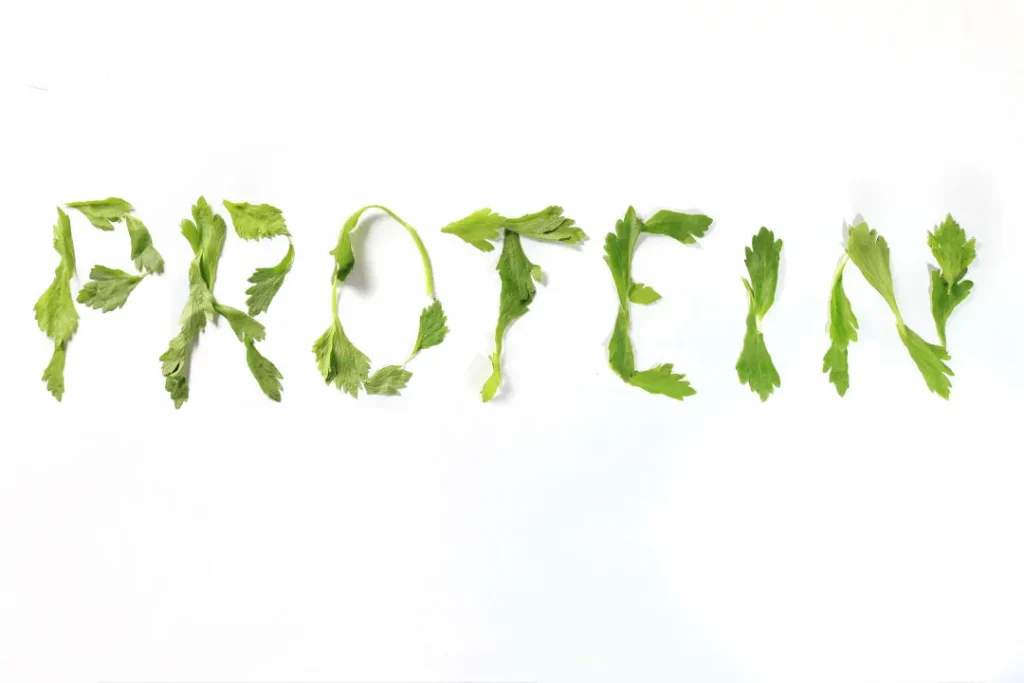A naturally occurring substance called sulforaphane is present in cruciferous veggies like broccoli, kale, and cauliflower. It is a specific kind of isothiocyanate that is created when glucoraphanin interacts with the enzyme myrosinase. The possible health benefits of sulforaphane, including its capacity to improve brain health and enhance concentration and cognition have been the subject of extensive research in recent years. The nature of sulforaphane, its health advantages, the best dosage, side effects, possible drug interactions, and responsible use will all be covered in this piece.
You May Also Like:
Nootopia Brand vs MyPEAK Brand: Best Nootropic Supplements Compared
Natural Stimulants: Top 7 Supplements to Keep You Awake, Aware, and Focused
Nature of Sulforaphane
The isothiocyanate family includes the sulfur-containing compound, sulforaphane. Its molecular weight is 177.3 g/mol and the molecular formula is C6H11NOS2. Glucoraphanin is the type of glucosinolate that can be found in cruciferous veggies. Glucoraphanin can be converted into sulforaphane. This reaction involves myrosinase which is an enzyme that is produced when the vegetable is chewed or cut.

Health Benefits of Sulforaphane
The possible health benefits of sulforaphane, especially it’s capacity to improve cognitive ability, have been studied. By increasing the production of brain-derived neurotrophic factor (BDNF), a protein that promotes the development and survival of brain neurons, studies have shown that sulforaphane can enhance cognitive function. Additionally, anti-inflammatory and antioxidant qualities of sulforaphane have been discovered, which may offer protection against neurodegenerative illnesses like Parkinson’s and Alzheimer’s disease.
Sulforaphane has been demonstrated to have potential health advantages for other parts of the body in addition to its impacts on the brain. According to studies, sulforaphane can enhance cardiovascular health by reducing inflammation, blood pressure, and blood sugar. The potential anti-cancer effects of sulforaphane have also been investigated, especially it’s capacity to activate the body’s defense mechanisms against cancer cells.


Chemistry of Sulforaphane
As previously stated, sulforaphane is a naturally occurring compound present in cruciferous veggies like broccoli, kale, and Brussels sprouts. It is created when myrosinase breaks down a precursor protein called glucoraphanin. When plant cells are harmed, as happens when veggies are chopped or chewed, this reaction will take place. Sulforaphane, which is created when glucoraphanin breaks down, has a special chemical structure that makes it possible for it to engage with the body in a number of different ways.
Sulforaphane has a sulfur group and a reactive isothiocyanate group in its molecular makeup. Sulforaphane can attach to these groups of proteins in the body and change how their pathways. The nuclear factor erythroid 2-related factor 2 (Nrf2) pathway, which controls the body’s antioxidant reaction, and the nuclear factor kappa light chain enhancer of activated B cells (NF-kB) pathway, which is involved in inflammation, have both been shown to be activated by sulforaphane. Sulforaphane may have a variety of possible health advantages by modifying these pathways.


Physiological Mechanism of Action of Sulforaphane
Sulforaphane has been demonstrated to have positive impacts on the brain, increasing the production of a protein known as a brain-derived neurotrophic factor (BDNF). A variety of cognitive functions, including memory, learning, and mood regulation, depend on BDNF for the growth and survival of neurons in the brain.
Sulforaphane has also been demonstrated to control reactive stress and inflammation in the brain. This as previously mentioned, may help to prevent neurodegenerative illnesses like Alzheimer’s and Parkinson’s. These conditions can both be caused by inflammation and oxidative stress.
Sulforaphane has been demonstrated to have possible advantages for a variety of other health conditions in addition to its effects on the brain. Sulforaphane has been long investigated for its possible anti-cancer properties as it may aid in halting the growth and spread of cancer cells. By lowering inflammation and raising blood lipid levels, sulforaphane has also been shown to benefit arterial health.
Sulforaphane’s physiological mechanism of action is intricate and includes the manipulation of numerous cellular pathways overall. Sulforaphane may have a number of potential health advantages by triggering these pathways, including improved cognitive performance and defense against a number of diseases.
Optimal Dosage of Sulforaphane
There is currently no conclusive information regarding the ideal sulforaphane dose. However, the majority of investigations have employed daily dosages of 100 to 400 micrograms per kilogram of body weight. It is significant to remember that sulforaphane’s bioavailability can change based on the compound’s source and method of preparation. Sulforaphane supplements, for instance, might be more bioavailable than sulforaphane-rich meals.
Side Effects of Sulforaphane
There have been few reported side effects for sulforaphane, which is usually regarded as safe and well-tolerated. However, high amounts of sulforaphane, have the potential to upset the stomach and result in nausea, bloating, and diarrhea. Additionally, there is a chance that sulforaphane could interact with some drugs, especially drugs that are metabolized by the liver. As a result, it’s crucial to get medical advice before consuming sulforaphane supplements.


Potential Substance Interactions with Sulforaphane
Certain medicines, especially those that are metabolized by the liver, may interact with sulforaphane. For instance, sulforaphane may increase the activity of the liver enzyme cytochrome P450, which can speed up the metabolism of some medications, resulting in lower blood levels and perhaps decreased efficacy. Given that sulforaphane has been discovered to have hypoglycemic effects, sulforaphane may also interact with medications that influence blood sugar levels.
Responsible Use of Sulforaphane
A natural substance called sulforaphane has the capacity to improve mental concentration and cognitive ability. However, it’s crucial to use sulforaphane responsibly and to speak with a doctor before taking supplements, especially if you are on medication or have a medical problem that hasn’t been diagnosed yet. Sulforaphane should only be purchased from reliable vendors, and dose guidelines should be followed.
While sulforaphane has been investigated for its potential health advantages, it should be noted that this does not mean that a healthy diet and way of living should be abandoned. Along with regular exercise and other healthy behaviors, eating a diet high in cruciferous vegetables can give a number of additional health advantages over sulforaphane supplements alone.


Sulforaphane:
Conclusion
Sulforaphane can be sourced from cruciferous plants such as broccoli, Brussels sprouts and bok choy, etc. If you are seeking to improve your cognitive performance, concentration or memory, you can try out a new supplement regimen with sulforaphane. Sulforaphane can control neurotransmitters and also prevent brain inflammation. Its benefits in improving overall brain health and performance along with its anti-inflammatory properties make it a suitable choice for most people. However, sulforaphane when consumed inappropriately with antagonistic supplements or medicines may badly affect your health so it is best if you speak with a doctor before beginning a new supplement regimen. You should also select sulforaphane from a reputable source to ensure that the supplement is of superior quality.
References:
- “The Role of Sulforaphane in Brain Health: Possible Mechanisms and Therapeutic Potential” and link: https://www.frontiersin.org/articles/10.3389/fnagi.2020.00235/full
- “Sulforaphane and Its Effects on Cancer, Mortality, Aging, Brain and Behavior, Heart Disease & More” and link: https://www.foundmyfitness.com/episodes/sulforaphane
- “Sulforaphane as a Potential Protective Phytochemical against Neurodegenerative Diseases” and link: https://www.mdpi.com/2072-6643/10/6/678
- “Neuroprotective Effects of Sulforaphane on Cognitive Function in Alzheimer’s Disease” and link: https://www.sciencedirect.com/science/article/pii/S0197458018303460
Important Note: The information contained in this article is for general informational purposes only, and should not be construed as health or medical advice, nor is it intended to diagnose, prevent, treat, or cure any disease or health condition. Before embarking on any diet, fitness regimen, or program of nutritional supplementation, it is advisable to consult your healthcare professional in order to determine its safety and probable efficacy in terms of your individual state of health.
Regarding Nutritional Supplements Or Other Non-Prescription Health Products: If any nutritional supplements or other non-prescription health products are mentioned in the foregoing article, any claims or statements made about them have not been evaluated by the U.S. Food and Drug Administration, and such nutritional supplements or other health products are not intended to diagnose, treat, cure, or prevent any disease.
